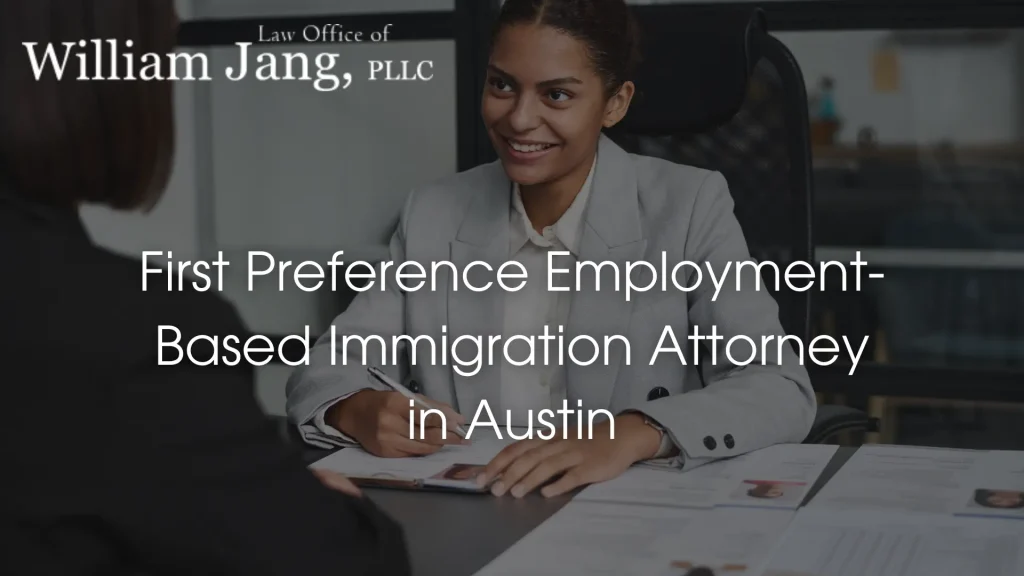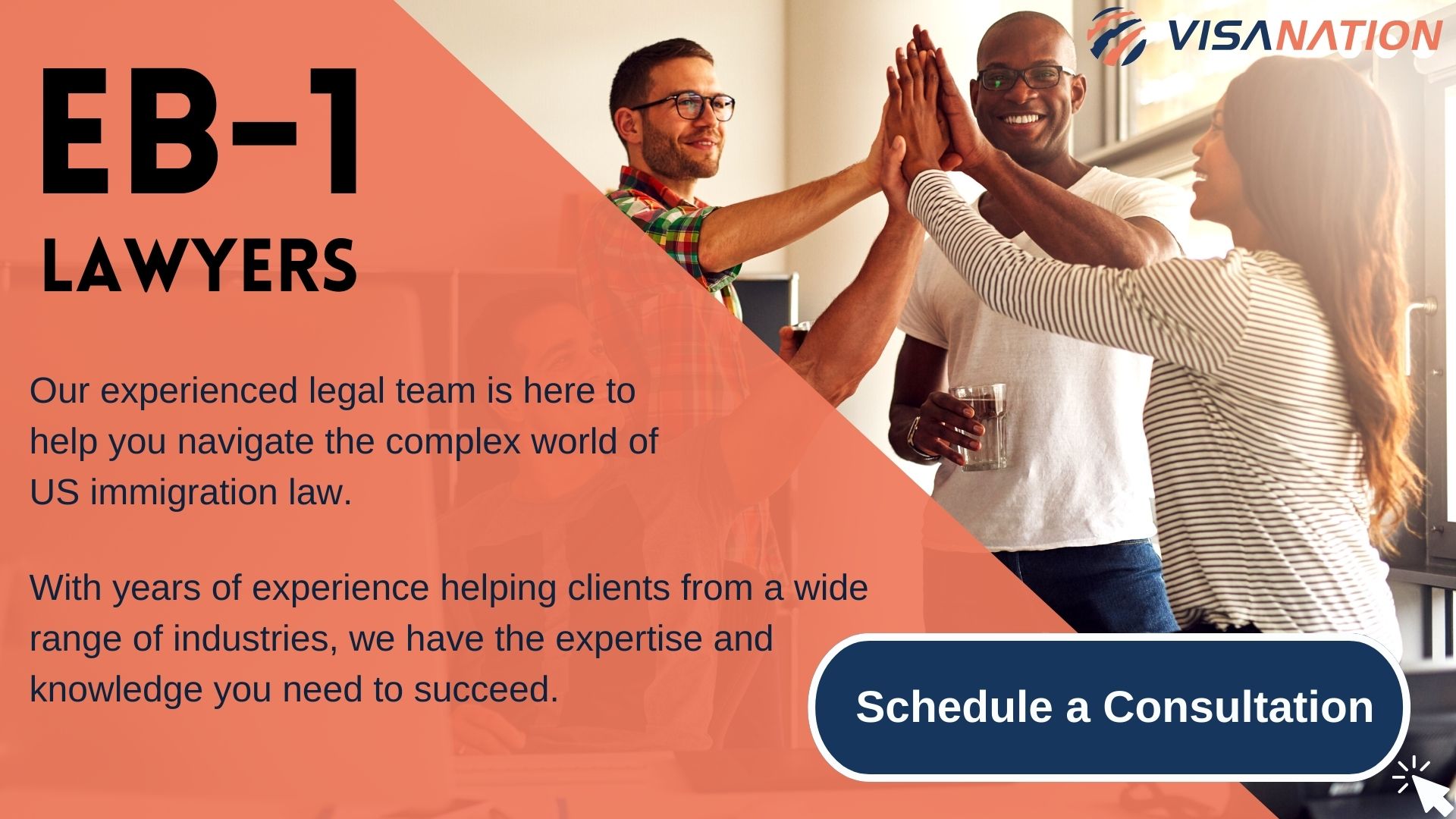EB1 Visa Lawyer
by Admin
Posted on 13-01-2025 06:22 AM

Understanding the EB-1 Visa
The EB-1 visa is a type of employment-based immigrant visa that offers permanent residency (a green card) to individuals who meet specific criteria. There are three subcategories of the EB-1 visa:
To qualify, applicants must provide evidence of sustained national or international acclaim and recognition in their field.
EB-1B: Outstanding Professors and Researchers
Applicants must have at least three years of experience in teaching or research and must be entering the U.S. to pursue a tenured or tenure-track teaching position or a comparable research position.
EB-1C: Multinational Executives and Managers
The Role of an EB-1 Visa Lawyer
An EB-1 visa lawyer is a legal professional who specializes in immigration law, particularly in the EB-1 visa category. These lawyers provide a range of services to help applicants navigate the complex and often overwhelming process of obtaining an EB-1 visa. Here are some of the key roles and responsibilities of an EB-1 visa lawyer:
Legal Guidance and Strategy
Document Preparation and Review
Representation and Advocacy
Navigating Complex Cases
Benefits of Hiring an EB-1 Visa Lawyer
Hiring an EB-1 visa lawyer can significantly increase your chances of a successful application. Here are some of the key benefits:
Expertise and Experience
Time and Stress Reduction
Increased Success Rate
Steps to Hire an EB-1 Visa Lawyer
If you decide to hire an EB-1 visa lawyer, here are the steps you should follow:
Research and Selection
Initial Consultation
Agreement and Retainer
Collaboration and Communication
Common EB-1 Visa Application Issues
Even with the help of a skilled EB-1 visa lawyer, applicants may encounter various issues during the application process. Here are some common challenges and how a lawyer can help:
Requests for Evidence (RFEs)
Denials and Appeals
Changes in Immigration Law
Conclusion
Securing an EB-1 visa is a significant achievement that can open doors to new opportunities in the United States. However, the application process can be complex and challenging. By hiring an experienced EB-1 visa lawyer, you can navigate the process with confidence and increase your chances of a successful outcome. Whether you are an individual with extraordinary abilities, an outstanding professor or researcher, or a multinational executive or manager, an EB-1 visa lawyer can provide the expertise and support you need to achieve your immigration goals.
FAQs
What is the main difference between the EB-1A, EB-1B, and EB-1C visa categories?
The main differences between the EB-1A, EB-1B, and EB-1C visa categories lie in the specific eligibility criteria and the type of work or achievements that qualify you for each category. The EB-1A is for individuals with extraordinary abilities, the EB-1B is for outstanding professors and researchers, and the EB-1C is for multinational executives and managers.
How long does it take to process an EB-1 visa application?
The processing time for an EB-1 visa can vary depending on several factors, including the complexity of the case, the volume of applications being processed by USCIS, and whether premium processing is used. Generally, the process can take several months to a year or more.
Can I apply for an EB-1 visa without a lawyer?
While it is possible to apply for an EB-1 visa without a lawyer, it is highly recommended to seek the assistance of an experienced EB-1 visa lawyer. The application process is complex, and a lawyer can help you navigate the requirements, prepare a strong case, and increase your chances of success.
What happens if my EB-1 visa application is denied?
If your EB-1 visa application is denied, you have the option to appeal the decision or file a motion to reconsider. An EB-1 visa lawyer can help you understand the reasons for the denial and prepare a strong case to challenge the decision.
Can I apply for an EB-1 visa if I have a history of visa denials?
Yes, you can apply for an EB-1 visa even if you have a history of visa denials. However, it is crucial to address the reasons for the previous denials and provide a strong case for why you meet the EB-1 visa criteria. An EB-1 visa lawyer can help you navigate this process and increase your chances of a successful application.
What is the role of a petitioning employer in the EB-1B and EB-1C visa categories?
In the EB-1B and EB-1C visa categories, a petitioning employer is required to sponsor the application. For the EB-1B, the employer must offer a tenured or tenure-track teaching position or a comparable research position. For the EB-1C, the employer must be a related U.S. entity that will employ the applicant in a managerial or executive capacity. The petitioning employer plays a crucial role in providing the necessary documentation and support for the application.
THE LAW OFFICES OF CHRIS M INGRAM
401 Wilshire Blvd Fl 12, Santa Monica, CA 90401
(310) 496-4292
